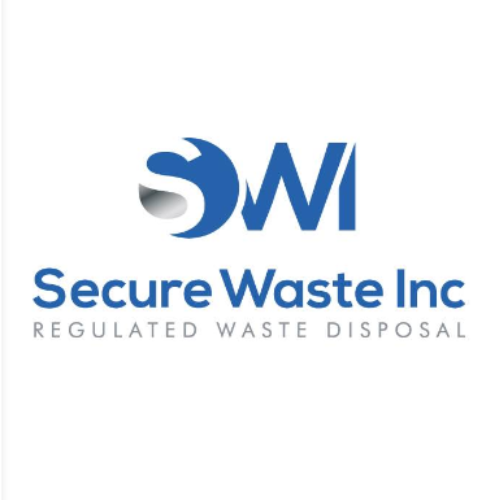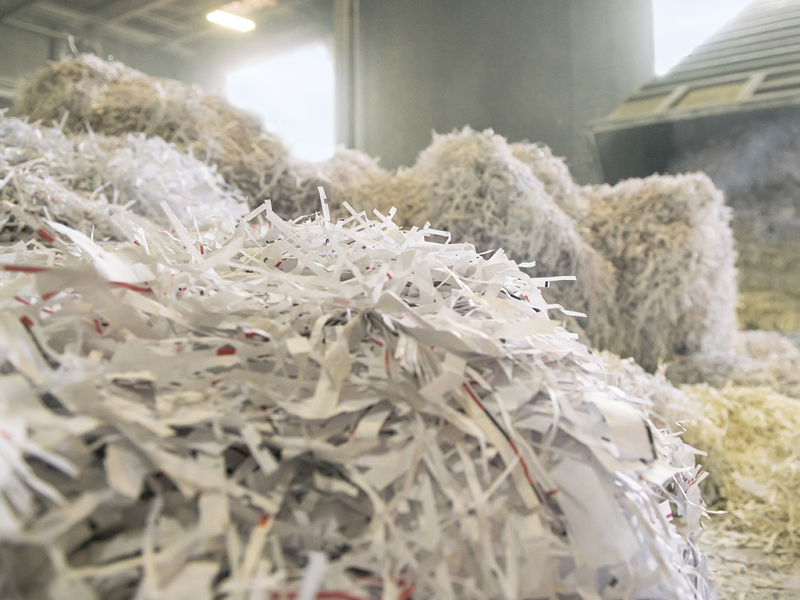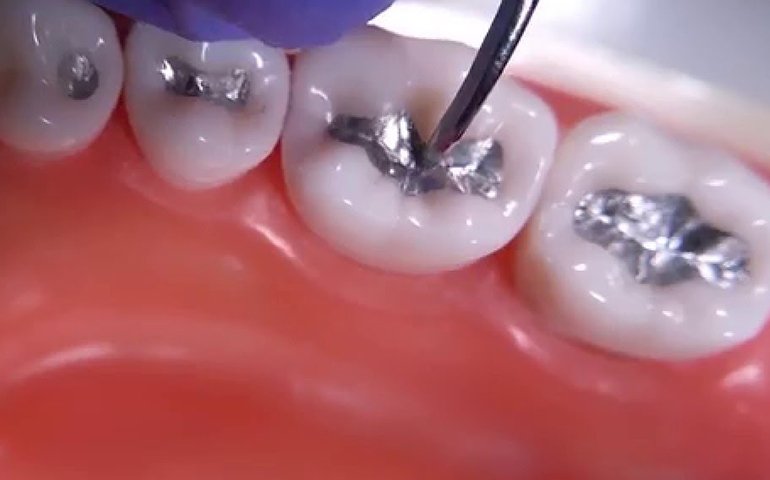Proper Document Shredding: Best Practices for Businesses and Individuals in MD, VA, and DC.
Protecting your private information is critical for businesses and homeowners in the Maryland-Virginia-Washington, D.C. region. Identity Theft, Fraud, and Data Breaches are the Way, so Confidential Paperwork Must Be Disposed of Safely. If you don’t destroy the record correctly, then criminals will have the opportunity to re-assemble personal or business documents. This post explains the best practices in Shredding, including what to shred and keep, how to prepare records for destruction, why legal is essential, and why going the pro-shredding service route gives you peace of mind. We will go ahead and outline multiple times how Secure Waste can help with the destruction of documents.
Why Secure Shredding Matters
If someone else finds it, they could be hurt; if you print an original, your pages are fair game. For example, (HIPAA for medical info and FACTA for financial info) Regulations force organizations to destroy personal data properly. Even basic items (old tax returns, pay stubs, bank statements, expired ID cards…) usually gather identifying information. If these fall into the wrong people’s hands, they can commit fraud or identity theft. It is critical to dispose of confidential paper shreds to preserve privacy.
Shredding is not just for security; it’s a compliance and green measure. Shredders dissect paper into confetti-sized particles that cannot be reconstructed, and many shredding companies will go a step further and see that the shredded paper is reprocessed and returned to a new stock of paper. Tossing documents in the trash could end up in a landfill or be discovered by criminals. Paper shredding makes it no longer conducive for most people and destroys recycling bowls. In contrast, a professional shredding company does both destruction and recycling at the same site and eliminates Waste in the environment.
Therefore, every organization – from home-based businesses to corporate-level workplaces- has to have a straightforward purpose for the shred plan. You can avoid anything sensitive from being wrong or exposed with a structured approach and the proper shredding buddy.
Understanding What to Shred (And What to Keep):
1. Identify Documents That Contain Private Information
Initiate Shredding—identify the records containing sensitive information. Not everything on paper needs to be shredded, not every last item regarding public or private records. Usually, you shred documents containing personal identifying information (names, social security or account numbers, financial data, health information, etc.).
2. Know What Should Always Be Shredded
To shred, always consider bank statements, credit card bills or invoices, tax forms (oh my!), legal documents, etc. Once discontinued, bank statements, credit card statements, old tax forms, old contracts, old credit cards, CDs/DVDs, expired passports, or relevant personnel records should also be shredded. If it contains your personal or company information, you’ve used it and don’t need it.
3. Don’t Shred Too Soon: Understand Retention Guidelines
Please be careful not to destroy necessary records prematurely. Most laws provide for minimum periods of retention of certain documents. Tax returns and business ledgers can be considered to be recorded for multiple years per IRS, as well as accounting rules. Most contracts are destroyed in the event of completion; shredding them early may expose you to the law, or you may not have proof of transactions.
4. Organize Before You Shred
Before Shredding, you need to sort your papers into recognized piles. When properly done, the experts recommend filing things in labeled folders or bins (financial, medical, personal, past IDs) to know which piles get shredded and which you still need. This is a way to shred better and faster and also avoid errors.
5. Create a Clear Shredding System
Sorted, you will see exactly what gets destroyed and what is supposed to stay on file. Establishing a system ensures you are compliant and out of your mess while preserving urgent documents.
Compliance and Legal Requirements
Maryland, Virginia, and DC have different laws regarding data privacy and document destruction. Further along the river of life, valid federal statutes also apply. For example, healthcare providers are supposed to follow the privacy rule of HIPAA so that medical records and health-related information are disposed of securely. Financial institutions must comply with Gramm–Leach–Bliley customer data and storage standards. Consumer personal financial information (e.g., shredded or destroyed so it is not reconstructible) has to be destroyed per the Fair and Accurate Credit Transactions Act of FACTA.
These are expected obligations reinforced by your state’s laws in this region. For example, filers in Maryland are required to report sensitive data as part of the state’s Identity Theft and Assumption Deterrence Act. The District of Columbia and Virginia have data breach disposal laws requiring companies to secure consumers’ personal data. You can sometimes be penalized or even sued for failure to comply.
That translates for businesses in MD, VA, or DC, meaning that you must adopt a single company-wide shred policy equal to the regulatory regardless of state. Just so you know, any business record (retained or thrown away) can be discoverable in a lawsuit or audit, so you need proof. The best shredding services give you a Certificate of Destruction after the shred event, which shows that industry standards destroyed your records.
This certificate becomes a component in your compliance plan, proving to regulators or auditors that you have done everything possible to comply.
Preparing Your Documents for Shredding
Proper document shredding starts before the shredding truck arrives. A little preparation goes a long way in ensuring the shredding process is fast, secure, and trouble-free. Whether you’re a small business, a healthcare provider, a legal office, or a homeowner clearing out files, organizing your documents ahead of time is essential.
1. Remove Staples, Clips, and Non-Paper Items
Document prep: First things first, get rid of the metal fasteners. Although industrial shredders can cut staples or even paper clips, you should remove these for the sake of your equipment. Clipboards, rubber bands, and hanging file tabs should also be removed. These will get jammed in the high-speed shredders or clog the machinery, further slowing down work.
Waste a few minutes getting rid of everything EXCEPT PAPER. That allows your shredding provider to get the job done faster and saves you money for equipment they break. Documents that are folders with plastic tabs (bullpen), clear sheet protectors, or report covers— also pull those.
2. Use Proper Containers to Collect and Transport Paper
Now that your documents are wrinkle-free and free of all fasteners and non-paper items, you can begin storing them in the correct bin. For companies that schedule a regular date for their Shredding with companies like Secure Waste, they supply secure cardboard shred bins with locks in different sizes—typically from 30 to as tiny as 64 gallons. The containers have secure slots so employees can insert paper, closed pieces, or whole straight into them.
If you have to go through a one-off purge, use cardboard boxes, trash bags, or file boxes for your stuff. If you separate the paperwork in an office with multiple shared space users, containers should be marked easily for Shredding.
Do not overfill or confuse the different types of Waste. Keep all paper-based materials together for an easier and safer way for the crew to deal with its content quickly & cleanly.
3. Double-check for Restricted or Prohibited Items
Not everything can go into a paper shredder. Before handing off your containers, please review the contents for non-paper items that should be separated and disposed of properly. These include:
- Credit cards or thick plastic cards
- Laminated badges or IDs
- X-ray films
- Vinyl or plastic folders
- CDs, DVDs, flash drives, or hard disks
- Batteries or electronic parts
These can clog/shred machines and split the leaf. Many shredding companies are only paper shredding oriented, so there is a bit more work required to ensure these types of materials are destined for electronics/recycling through specialty programs. If you have different media, some shredding companies (like Secure Waste) will even perform data destruction as a separate service for hard drives and e-media—ask in advance.
4. Group and Label for Maximum Efficiency
Group documents of the same type together to speed up the process and avoid confusion. This is particularly useful for huge trash or department cleanouts/day. Label the section containing the group financials, the one for HR records next, and a continuation for others. With clearly labeled boxes, the technician will be able to shred faster, and you will have an idea that nothing important got shredded by mistake with the junk.
Purposeful organization and labeling of your boxes also help keep you on board with record-keeping in compliance-heavy companies. Always keep a log or track what you’ve shredded (example: “Shredding Company: log April 2024—Financials, purged March 2020”)—even if the company that comes to your office for Shredding gives you a Certificate of Destruction.
5. Perform a Final Confidentiality Sweep
Could you please do a final sweep of your documents before your scheduled service date? This is your last chance to ensure that nothing important was missed and that everything intended for destruction is accounted for.
Here’s what to do:
- Look through your file drawers or storage cabinets one last time.
- Scan each stack for Social Security numbers, account numbers, private addresses, or financial details.
- Ensure all outdated but confidential documents are in the shred pile and that essential retained records are securely stored.
- If you need to keep a record, consider redacting sensitive information before storing or scanning it.
A few minutes of careful review can prevent sensitive data from being exposed—or essential records from being lost forever.
Choosing the Right Shredding Service
Office shredders are available for purchase, though many businesses prefer the service and security of having a professional shredding company come in. There are plenty of options in Maryland, Virginia, and DC (national and local) places to shred your confidential data. Get the best with at least 2 or 3 companies to compare based on service. Consider certifications, price transparency, and reputation are key.
Find a provider that is NAID-certified (National Alliance for Information Exploitation). NAID certification is significant, meaning the company must adhere to high standards and data integrity. A reliable shredding partner should be fully bonded and insured, so they send one of their trained professionals to do the job. Customer feedback or getting calls from some of the same local peers can also be helpful.
Price is one factor, but do not make it the prime factor. Customer service will make or break the account. It needs to be simple to contact your shredding company and have them call you back, and you need to be able to respond quickly if your needs change. Also, many companies offer month-to-month services without long-term contracts.
Secure Waste does no-contract shredding solutions for MD and VA companies.
Education of the end consumer Another element is education of the end user. The shredding vendor should train the end-user on proper disposal; if not, they should advise you. They must spell out what’s itemized and how digital or paper records are handled. After all, even the most efficient shredding service will not save you if your workforce is not compliant.
On-Site vs. Offsite Shredding
A primary decision is whether to shred on-site(at your location) or offsite (at the off-siteility). Both have advantages, but on-site is usually advised for maximum security unless you access your sanity.
Offsite means locked bins of paper from your office are picked up by trucks or couriers and delivered to a central plant. Offsite is usually a nano percent cheaper, but with that also comes more risk. Your critical files are just a few seconds out of sight during transit.
On the other hand, in-place Shredding at least allows you to see the whole process. A safe mobile shred truck will be delivered right to your parking lot. Your employee will roll the shred bin to the car and burn all the paper in real time. After being done, the driver will give you a Certificate of Destruction.
Shredding in place is like the holy grail of confidentiality. When it leaves, no paper is outside your facilities. On-site destruction and certification are critical to compliance with HIPAA, FACTA, etc. Site service guarantees your documents will never be lost from that closed loop.
Recurring vs. One-Time Shredding Services
Shredding demand is not uniform. Some emit documents daily, others on rare occasions. Shredding is for everyone (recurring scheduled service) and one-time purges: shredding companies.
Recurring (Scheduled) Shredding: perfect for businesses doing a lot of printing. This Way, a shred company dispatches a crew to your place on a set schedule (weekly, monthly, and even quarterly). Documents are put into locked shred bins that employees drop off at the technician’s as he empties each bin into a bin/wagon on his next visit. After the shred, the company gives you the Certificate of Destruction.
Purge Shredding: One-Time (Some organizations only need shredding occasionally, like after a move, audit, or big cleanup). You stuff your papers in a box, and I pick them up on the designated day for Shredding. I report to the shredding truck and dump all of your boxes out. It’s fast, convenient, and eliminates decades of piled-up mess in a session.
Benefits of Professional Shredding
Here are some key advantages of using a pro service like Secure Waste:
- Industrial-Grade Security: Professional shredders cut paper into tiny pieces far finer than typical office machines, making reconstruction virtually impossible.
- Efficiency and Capacity: Industrial shredders can destroy paper boxes in minutes.
- Compliance: Certificates of Destruction help with audits and legal protection.
- Cost-Effective: No repair costs, no labor hours wasted, and no supply replacements.
- Environmentally Friendly: Most services recycle shredded paper.
- Peace of Mind: You can focus on your business while professionals handle the secure disposal.
Partner with Secure Waste for Reliable Shredding
Secure Waste: A local provider of business and for-identity-only data destruction to Maryland, Virginia, and Washington, DCA Secure Waste is an NAID-certified, fully insured service that provides single—and multi-stream Waste scheduled and location on-site shredding. Our plan is customized—there are no hidden fees or service lock-in.
The trucks have large-capacity shredders that shred quickly and thoroughly. We come when we say we will. If you or your staff can be there after service, you will receive an actual Certificate of Destruction. Secure Waste keeps you safe and up to code regardless of whether you run a medical clinic, law office, school, or small business.
Conclusion: Secure Your Data Today
Secure document destruction is not a one-time thing—it is security. You can prevent data from being exposed by discovering vital records, knowing retention laws, organizing your files, and choosing the right shredding company. Train your staff, institute a shredding policy, and stay on the right road.
Whether you own a business or live in Maryland, Virginia, or Washington, DC, professional Shredding is a safety and compliance play for you. Never deviate from the well-being of your documents. Contact Secure Waste and get an instant, hassle-free quote on shredding services
Call 877-633-7328 today or visit the Secure Waste website to book your secure shredding service.

Expert Medical Waste Management: With over 25 years of industry experience, Secure Waste is a trusted local leader in hazardous and biohazardous waste disposal across Maryland, Virginia, and Washington, D.C. Specializing in medical waste management, sharps needle disposal, and biohazard waste removal, the company ensures full compliance with federal, state, and local regulations while prioritizing environmental sustainability.
The company also offers additional services, including secure document shredding and sharps container sales, providing comprehensive solutions for healthcare facilities and businesses. Our cost-effective services help clients maintain regulatory compliance without unexpected costs.
With a commitment to customer satisfaction, Secure Waste offers tailored waste management plans that align with industry best practices. Their team of experts provides reliable, timely, and compliant services, making them the preferred choice for medical waste disposal. For a free waste quote or more information, visit www.securewaste.net






